news
Update : The four tax reform bills are not against the interest of the North and No dissolution of key federal agencies, Says Onanuga
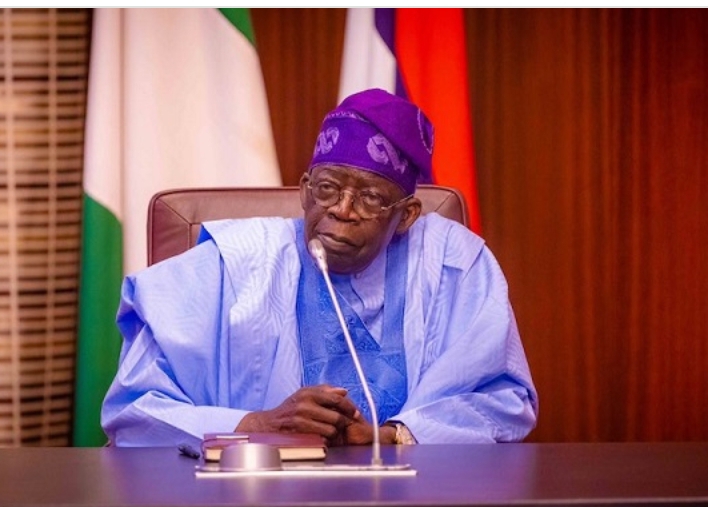
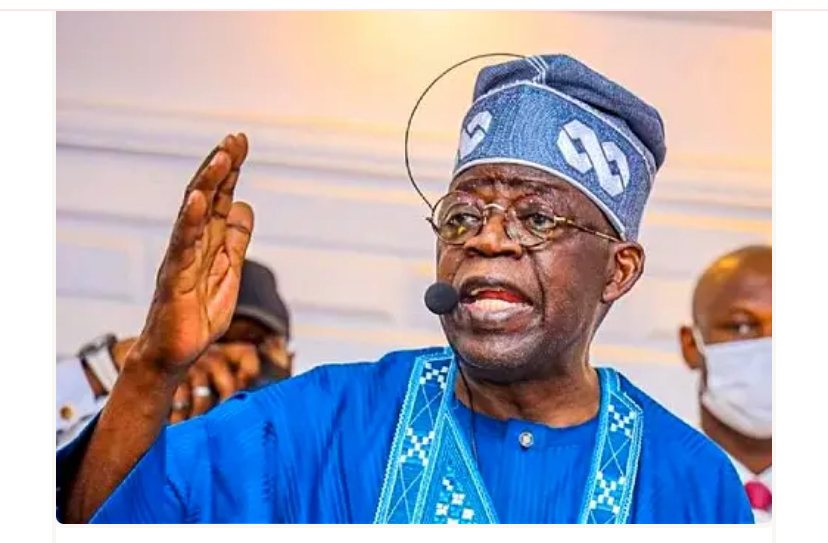 ….No plan to scrap TETFund, others
….No plan to scrap TETFund, others
.,…Dogara, Dickson: Bill in order
Kano House kicks
Apart from refuting the claims that the bills will undermine the economy of any region, the Presidency also clarified that the reforms are designed to streamline tax administration and promote equitable economic development across the country.
The bills have scaled the second reading in the Senate. It is now at the committee stage where it will undergo public hearing.
Also yesterday, Senator Seriake Dickson and former House of Representatives Speaker Yakubu Dogara, gave reasons why the tax reform is desirable and passage of the bills is necessary at this time.
While Senator Dickson (PDP Bayelsa) is optimistic of the bills’ passage, Dogara said the bills would make the North self-reliant hence the region should support it.
Also, House of Representatives spokesman, Akin Rotimi, confirmed that member of the House of Representatives had been informed of the postponement of discussions on the tax bills. The debate ought to hold today.
He said: “The postponement is due to the need for further and broader consultations with all relevant stakeholders.”
Kano State House of Assembly yesterday kicked against the bills, calling on the National Assembly to reject them. It made this position known after its sitting.
Presidential Spokesman Bayo Onanuga also refuted claims that the bills recommended the dissolution of key federal agencies, such as the National Agency for Science and Engineering Infrastructure (NASENI), Tertiary Education Trust Fund (TETFUND), and National Information Technology Development Agency (NITDA).
Onanuga said: “Since the public debate around the transformative tax bills before the National Assembly began in the last few weeks, various political actors and commentators have tried to obfuscate the facts, deliberately misinforming and misleading the public.
“Unfortunately, most reactions are not grounded in facts, reality, or sufficient knowledge of the bills. While some commentators have attempted to incite the people against lawmakers, others have polarised one section of the country against another.
“The tax reform bills will not make Lagos or Rivers more affluent and other parts of the country, as recklessly canvassed, poorer. The bills will not destroy the economy of any section of the country. Instead, they aim to enhance the quality of life for Nigerians, especially the disadvantaged, who are trying to make a living.
“Contrary to the lies being peddled, the bills do not suggest that NASENI, TETFUND, and NITDA will cease to exist in 2029 after the passage of the bills.
“Government agencies, such as NASENI, TETFUND, and NITDA, are funded through budgetary provisions with company income tax and other taxes paid by the same businesses that are being overburdened with the special taxes.
“One reason President Bola Tinubu embarked on the Tax and Fiscal Policy Reforms is the need to streamline tax administration in Nigeria and make the operating environment conducive for businesses.
“For decades, businesses, investors, and private sector players in Nigeria have complained of being overburdened by a myriad of taxes and levies, including those earmarked to fund various government agencies and initiatives.
“The multiple taxes complicate the economic environment, making Nigeria uncompetitive for investment and preventing many businesses from growing or continuing their operations.
“Some companies have had to make the rational decision to relocate to other countries. We cannot continue on this path or wait for 20 years if this country is to deliver the prosperity we need for our people.
“The proposal, as contained in Section 59(3) of the Nigeria Tax Bill, only seeks to consolidate some of the earmarked taxes imposed on companies and replace them with a single tax to be shared with the key agencies as beneficiaries in a phased manner until 2030.
“The time frame offers ample opportunity for the affected agencies to explore other funding sources in addition to budgetary allocations in line with the constitution and international best practices.
“It is a misrepresentation of facts to conclude that changing an agency’s funding source amounts to scrapping it. None of the countries leading globally in education, science, engineering, or information technology have similar earmarked taxes.
“The government imposes major taxes, be it income tax, consumption tax, or other taxes, to channel resources to its areas of priority at the time. Imposing a separate tax to fund an agency is an aberration that has yet to yield results despite the huge burden on businesses. The tax bill seeks to address this problem.
“Relevant stakeholders and public analysts owe it a duty to properly educate themselves about the bills’ contents and avoid misleading the public for any reason. We may be entitled to our opinions, but such views must be informed and based on facts, not emotions targeted at inflaming passions.
“In a period like this, when our people across the country look up to leaders for guidance and direction on matters of public importance, such as the Tax Reform Bills, leaders should be more measured in their public utterances to avoid heating the polity and polarising the country unduly.
“President Tinubu welcomes the public interest these bills have generated. He encourages leaders across the country, including governors, traditional rulers, civil society activists, students, trade associations, professional associations, and the general public, to take advantage of the Public Hearings that the National Assembly will organise to present their views on how best to reform our taxes and fiscal regime.
“What is never in doubt is the imperative of changing the existing tax laws and administration that have become obsolete and unhelpful in achieving the growth and development we desire for our country”, the statement said.
National Assembly will pass bills, says Dickson
Dickson, Chairman of the Senate Committee on Ecology and Climate Change, said the opposition to the bills notwithstanding, the Senate would pass them in national interest.
He also allayed the fear in some quarters that the planned public hearing would be chaotic, if it is not postponed for further consultations.
“Those opposed to the bills should come to the public hearing with facts, if they have issues with any section of the bills.
“During the debate on the PIB, the Niger Delta leaders asked for 10% of the Operating Expenses or Expenditure (OPEX) of oil companies for host communities, but only 3% was granted.
“The late President Umaru Musa Yar’adua proposed 10% for the host communities, the National Assembly passed three per cent after about two decades without any protest.
He said: “The Senate has passed the Tax Reforms Bills for second reading. Public hearing will take place and people should get ready to present their positions. The tax bill is a law like every other law and it has to go through the normal legislative process.
“Right now, taxes from Bayelsa State are paid to Lagos State and I don’t want that to continue. When there is consumption of goods or services from any state it should be calculated and paid to that state.
Why I’m opposed to Tax Reform Bills, by Zulum
RHAN commends Senate as Tax Reform Bills scales through second reading
“Now there is an opportunity to review the tax laws, to correct the anomalies and that’s why I’m in support.“I know there are states that are feeling that when they apply the new sharing formula, they will earn less. It’s for them to raise those issues and bring the statistics. I don’t go by sentiments. I go by what is right and in the national interest.”
“Forget about uproar, there will be no uproar. Public hearing is an opportunity for people to present their matters, and nobody is going to be intimidated by uproar.
“The PIA was passed. We wanted 10%, which was what Yar’adua proposed. They (federal lawmakers) reduced it to 3%. Heaven did not fall. This tax reform bills will pass and heavens will not fall.”
Dickson spoke during an interaction with reporters at the National Assembly.
Dogara: North should accept reforms
Speaking on a national television programme last night, Dogara said: “We should remove the cap of regionalism, the cap of sectionalism, the cap of religion and put on the cap of leadership because that is what will resolve the quarrel that we have.”
He added: “I think one of the major objections is related to the issue of timing. I’ve heard this from leaders that I respect.
“But in leadership, when you talk about timing, the way I have heard them talk about is a tragic misconception of the notion of time itself because there’s nothing like the future, there’s nothing like the past,” he said.
“All we have is now. It is what you are doing now that will become your past. It is what you are doing now that will affect your future”.
“I don’t even care if it was part of the president’s agenda. All I am bothered with as a leader is: is it the right thing?”
“Secondly, I have heard about insufficient consultation. I had even heard legislators speaking as if they were spokespersons for some governors’ forum or others instead of looking at what is right, and proffering solutions.
“Now, I don’t know why he [Taiwo Oyedele), who leads the Presidential Fiscal Policy and Tax Reforms Committee and a panelist for the event] didn’t address some of these issues. But I believe in the course of our interface, he will address whether there was enough consultation with the governors.
“But I want to say this: at the state level, how many people do governors consult when they are making laws? I’m not challenging them. As a matter of fact, in some cases, state laws are written from the living rooms of governors.”
On derivation, Dogara said: “I say to them, if that is the case, let us define it.”
“I want to talk to my brothers in the North. I don’t think this is the time to begin to condemn the President and be saying that these bills are anti-North.
“So, we, as northerners, should better embrace this opportunity to build our region, and for our people to be generating wealth and building our economy.
“These bills will make us more independent and to look inwards to generate wealth.
“These bills discourage us looking at the government every time for money.
“I want to remind us that the President has done something that is significant. And in my life-time, if the President can pursue this to the end, it will mean that no Northern leader in my life-time has done what the President has done for the North. And that is the creation of the Livestock Ministry.
“There is a global business around that. The global market size of dairies, of beef in the next three years will rise to about $2.5 trillion. You can Google it. So if in the north, we are able to organize ourselves in such a way that we can corner just 5%, just 5% of this global market size of dairies and beef, I tell you that gives us $250 billion.
“We don’t need VAT from any state in Nigeria to survive. The North can survive on its own. We are the most endowed part of Nigeria.”
“We have all the resources, we can survive”, Dogara added.
Dogara, who noted that the President has done much for the North, said the claims that the bills are against the region are unfounded.
Kano House kicks
At the plenary presided over by the Speaker Isma’il Falgore, the lawmakers rejected the bills after extensive deliberation.
Majority Leader Lawan Husseini (ANPP-Dala) introduced a motion of ‘urgent public importance,’ emphasising the need for northern lawmakers and the Conference of Speakers to prevent the passage of the bills.
Husseini argued that if passed into law, the bills would not benefit the Northern States.
He condemned the Senate’s decision to approve the bills, saying, “we view it as a deliberate effort to sabotage the economy, increase hardship and further impoverishing the region.”
Husseini expressed concern over the proposed Value Added Tax (VAT) allocation system, noting that states like Lagos, where major corporations such as banks, telecommunications companies and multinational companies have their headquarters, would receive the largest share of the VAT.
“Lagos and its environs would account for 80 percent of the VAT collected in Nigeria, leaving northern states with a minimal share,” he said.
He warned that if allowed to scale through, the bill would further weaken northern states, potentially rendering some unable to pay salaries and worsening poverty and hardship.
Supporting the motion, Salisu Mohammed (APC-Doguwa) urged the upper legislative house to focus on more pressing national issues, such as attention insecurity and unemployment, instead of rushing the tax reform bills through the legislative process.
Murtala Kadage (ANPP-Garko) called for unity among lawmakers to prevent the bills from passing, for the benefit of the region.
The house called on northern members of the Senate and House of Representatives, along with the Conference of Speakers, to take a swift and decisive action to block the passage of the bills
news
Tinubu returns from Paris today, Says Onanuga
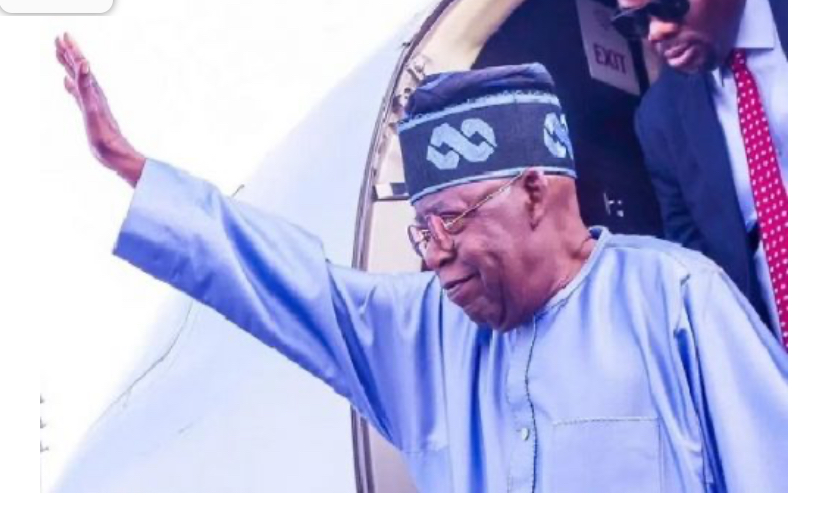
 President Bola Tinubu is set to return to Nigeria today after spending close to two weeks abroad, his Special Adviser on Information and Strategy, Bayo Onanuga, has confirmed.
President Bola Tinubu is set to return to Nigeria today after spending close to two weeks abroad, his Special Adviser on Information and Strategy, Bayo Onanuga, has confirmed.
Onanuga, in a brief post on X, wrote: “President Bola Ahmed Tinubu will return home today.”
The Presidency had earlier assured Nigerians that despite the President’s stay overseas, he remained fully engaged with national governance.
In a statement last Thursday, Onanuga explained: “The President left Paris for London at the weekend and has maintained constant communication with key government officials, overseeing critical national matters, including directives to security chiefs to address emerging threats in some parts of the country.”
He further emphasised that Tinubu’s absence was temporary and “in line with the communicated timeframe of approximately two weeks,” with his return scheduled for April 21, following the Easter holidays.
“The President’s commitment to his duties remains unwavering, and his administration continues to function effectively under his leadership.
“We appreciate the public’s concern and assure all Nigerians that governance proceeds without interruption,” the statement added.
Tinubu had departed for Paris on April 2, 2025, for what the Presidency described as a two-week working visit. According to Onanuga, the trip was intended to “appraise his administration’s mid-term performance and assess key milestones.”
news
Opeifa request for the state government to assist the Railway Police and Otti, thanks Tinubu for picking the best material to rewrite Nigeria Railway history

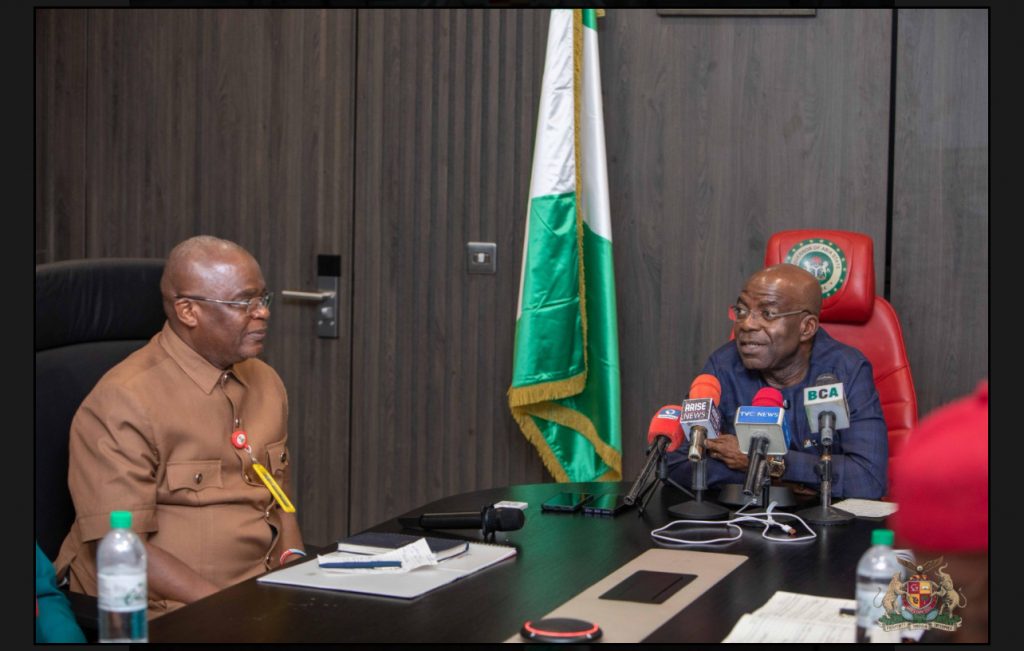 Gov. Otti describes Opeifa as a thorough-bred professional ready to rewrite Nigeria Railway history
Gov. Otti describes Opeifa as a thorough-bred professional ready to rewrite Nigeria Railway history
Lauds President Tinubu for picking the best material to reposition Nigeria’s oldest corporation
A deserving commendation came the way of the Managing Director of the Nigerian Railway Corporation, Dr Kayode Opeifa, as the Abia State Governor, His Excellency, Dr. Alex Otti, described him as an exceptional professional, most suitable to lead the Nigeria’s oldest surviving public corporation.
Governor Otti spoke on Wednesday, at the Government House in Abia State, during a business visit by the MD/CEO of the Nigerian Railway Corporation, as part of his familiarization tour of the Eastern District of the Corporation.
According to Governor Otti: “I have had so many engagements with past leaders of the Nigerian Railway Corporation, you are clearly different and knows the job”. He thanked President Bola Ahmed Tinubu for appointing Dr. Opeifa to lead the Nigerian Railway Corporation, expressing assurance at his ability to deliver.
He thanked the MD/CEO for promising to synergize with the Federal Ministry of Transportation, and the State Government to see that the transformation of the transportation system in Umuahia is achieved. According to the Governor, “Umuahia Bus terminal is progressing rapidly and we felt that it is important to replicate what we have in Paignton, United Kingdom in Umuahia, by linking the train station with the Terminal to enhance intermodal transportation services.
The Governor stated that he was very happy to see that the MD/CEO is committed to taking the track from Aba to Enugu and even beyond. He recalled, with nostalgia how the train had served the people of the state and regretted the downward trends of rain services across the entire South East.
On the MD/CEO’s request for the state government to assist the Railway Police in the state, Governor Otti promised that his government will provide mobility for Aba Railway Police.
He added that the state government is always ready to support the Federal Government institutions as users of such federal institutions are people of the state, adding that his administration cannot differentiate between federal and state government workers.
news
Airlin Advocacy Commissions Jos Office, Targets 7m Members By Next Elections,Says Mohammed Gamawa
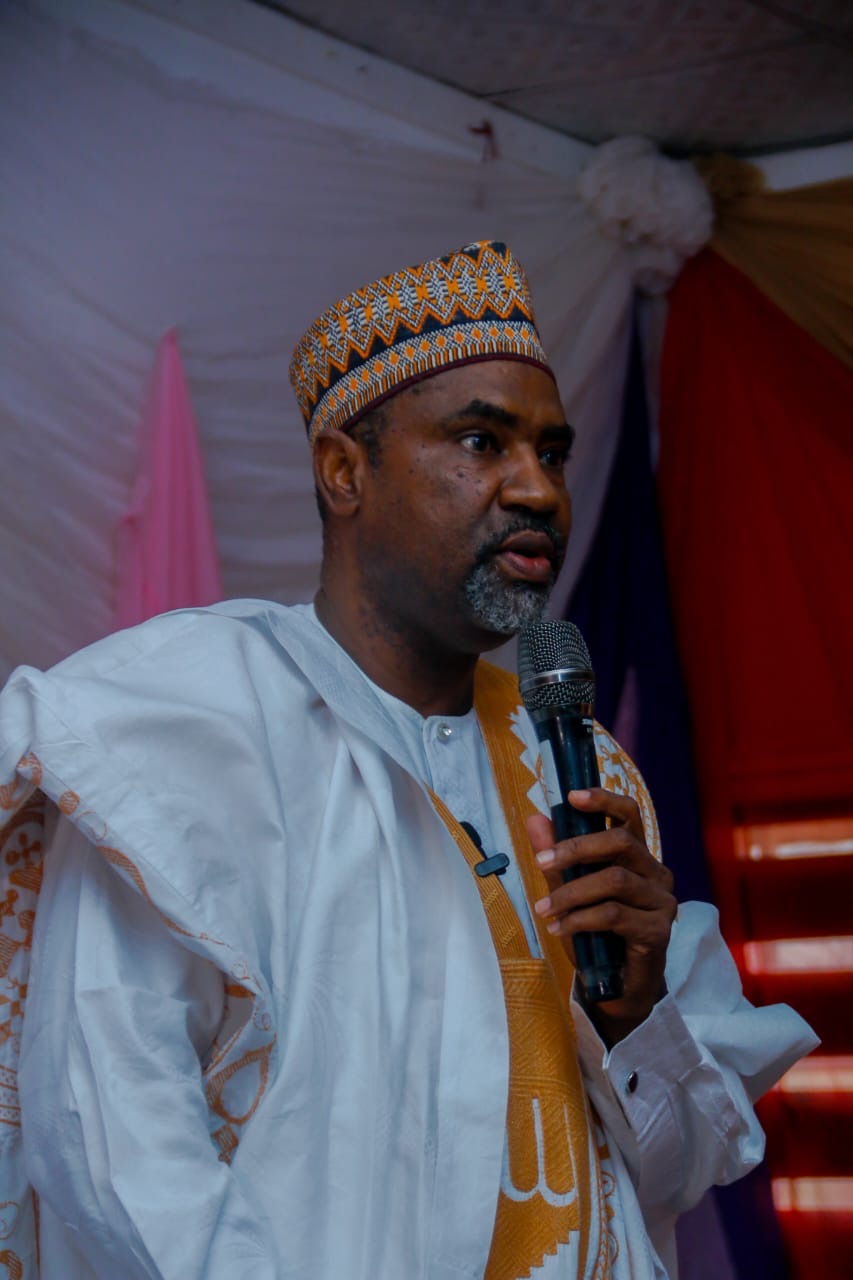
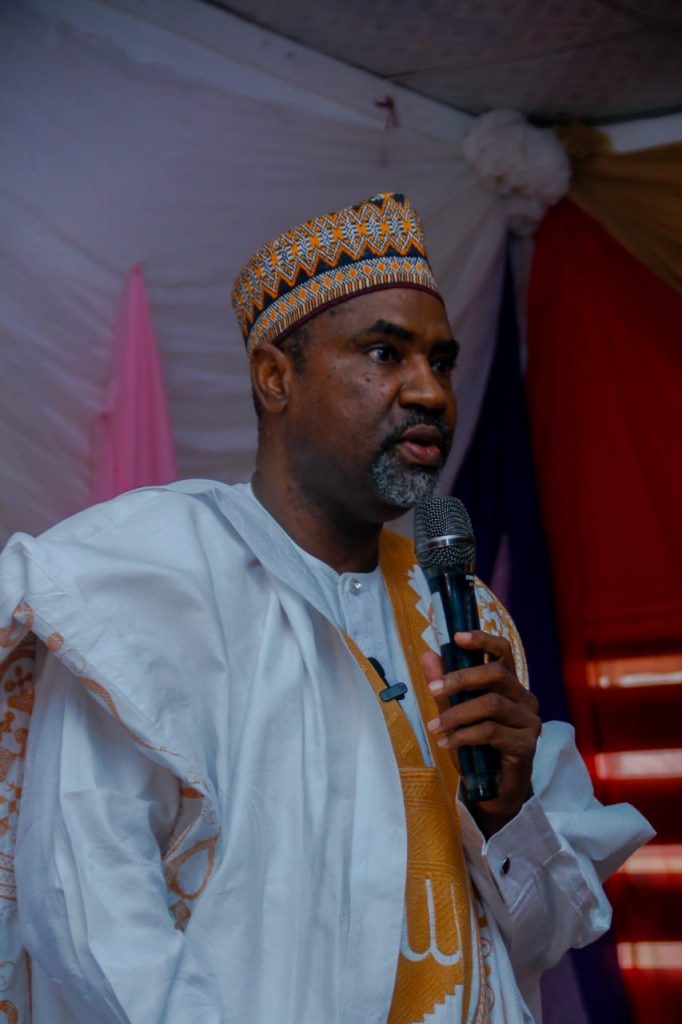 During the inauguration ceremony, the National Chairman of Airlin, Mohammed Gamawa, delivered a keynote address, emphasizing the organization’s commitment to educating Nigerians on their civic rights and responsibilities.
During the inauguration ceremony, the National Chairman of Airlin, Mohammed Gamawa, delivered a keynote address, emphasizing the organization’s commitment to educating Nigerians on their civic rights and responsibilities.
According to Gamawa, Airlin aims to bridge the gap between citizens and the principles of the rule of law by fostering a society where people understand not only their rights but also what is expected of them by the country.
“Our goal is to foster interaction among Nigerians, promote respect for the rule of law, and ensure citizens know their rights and civic responsibilities — such as voting to elect future leaders not based on materialism but based on integrity and competence,” Gamawa stated.
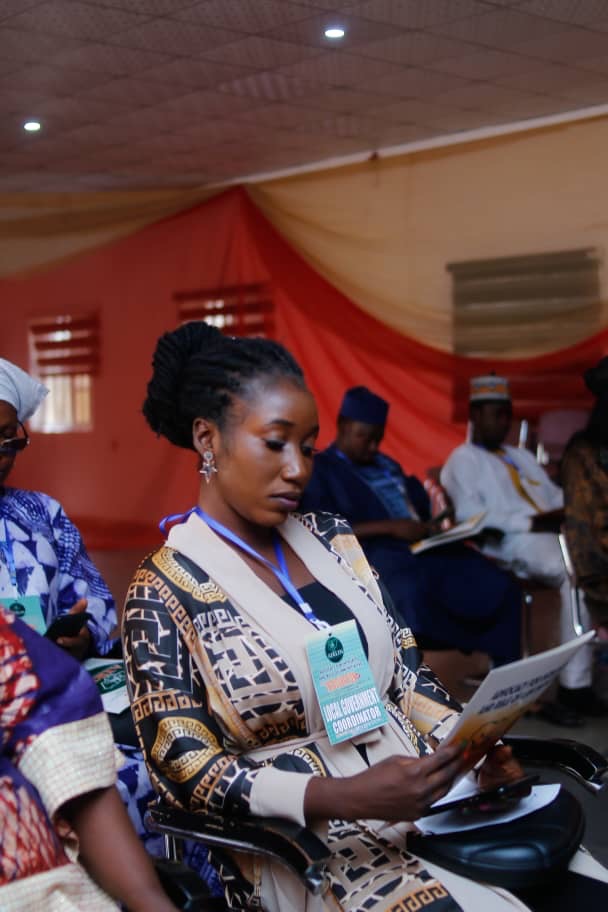
He added that understanding and exercising one’s franchise, especially during elections, must go hand in hand with being law-abiding and fully aware of civil responsibilities.
As part of its mission, Airlin is currently targeting 19 states in Northern Nigeria, with Jos becoming the 15th state to be commissioned.
The ceremony also featured the appointment of state and local government coordinators who will help drive the organization’s grassroots advocacy efforts.
With a current membership base of 2.1 million Nigerians aged 18 and above, Airlin projects a significant growth trajectory, aiming to reach 7 million members before the next general elections.
-

 news5 years ago
news5 years agoUPDATE: #ENDSARS: CCTV footage of Lekki shootings intact – Says Sanwo – Olu
-
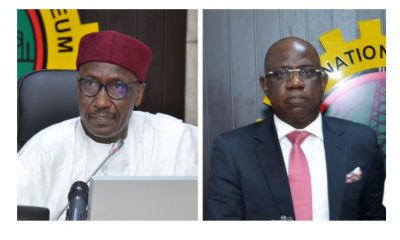
 news3 weeks ago
news3 weeks agoBreaking : TInubu appoints Bashir Ojulari as new CEO group of NNPC and GMD mele kyari get sacked, Says Onanuga
-

 news1 year ago
news1 year agoEnvironmental Pollutions : OGONI COMMUNITY CRIES OUT, THREATENS TO SHUT DOWN FIRSTBANK,SHELL OIL COMPANY OPERATIONS FOR NOT PAYING COURT AWARD
-
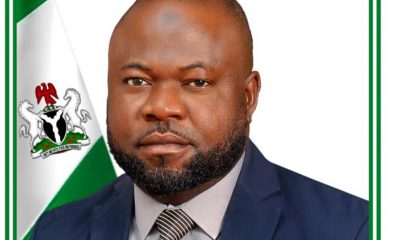
 interview3 weeks ago
interview3 weeks agoNIGERIA MECHANIZED AGRO EXTENSION SERVICE PROJECT, A STRATEGIC MOVE TO ALLEVIATE POVERTY – DR. AMINU ABDULKADIR
-

 news4 weeks ago
news4 weeks agoUpdate : Fubara ordered bombing of Rivers Assembly, I am not under duress I resigned, Says ex-Rivers HoS Nwaeke
-

 news2 weeks ago
news2 weeks agoNothing new in FBI report on Tinubu, says Onanuga
-
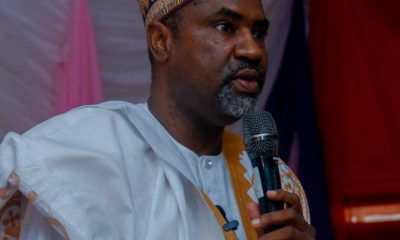
 news1 week ago
news1 week agoAirlin Advocacy Commissions Jos Office, Targets 7m Members By Next Elections,Says Mohammed Gamawa
-

 news3 weeks ago
news3 weeks agoTinubu commended Nandap for her leadership, extends Comptroller-General tenure till 2026, says Onanuga


